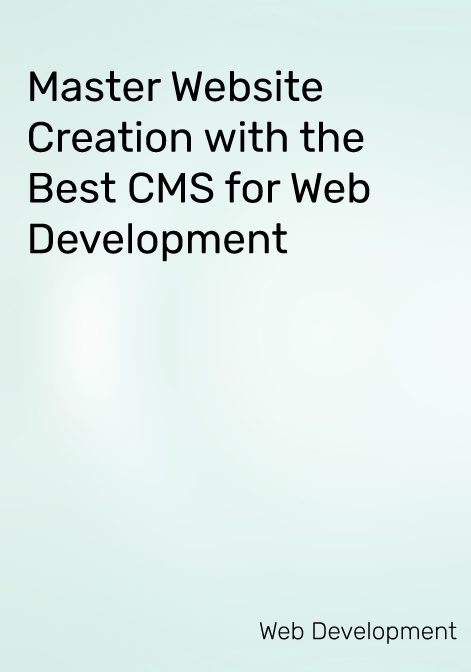Are you a web developer or a digital marketer looking to expand your skills?
If so, PHP development might be your next big thing. In this blog post, we’ll cover the essentials of PHP scripting, from its history to its practical applications in modern web development. Whether you’re a seasoned PHP enthusiast or a beginner eager to explore this powerful tool, you’ll find valuable insights, practical tips, and relevant examples here.
What is PHP?
Definition and History
PHP, which stands for “Hypertext Preprocessor,” is a server-side scripting language designed specifically for web development. Created in 1994 by Rasmus Lerdorf, PHP has evolved into one of the most popular programming languages for building dynamic websites and web applications.
Why Use PHP for Web Development?
Server-side Scripting Capabilities
One of PHP’s standout features is its ability to handle server-side scripting efficiently. This means it can execute code on the server before sending the final output to the user’s browser, ensuring greater control over web content and user interactions.
Open-source and Cost-effective
PHP is open-source, meaning it’s free to use and modify. This makes it a cost-effective option for developers and businesses alike, eliminating the need for expensive licenses or subscriptions.
Large Developer Community and Abundant Resources
With a vast community of developers, PHP offers abundant resources, including forums, tutorials, and documentation. This extensive support network ensures that you can quickly find solutions to any challenges you encounter.
Integration with Various Databases and Frameworks
PHP seamlessly integrates with multiple databases, such as MySQL and PostgreSQL, and works well with popular web frameworks like Laravel and Symfony. This flexibility allows developers to choose the best tools for their specific needs.
Scalability for Complex Web Applications
PHP is highly scalable, making it suitable for both small websites and large-scale web applications. Its performance and stability have been proven in numerous high-traffic websites, ensuring it can handle substantial workloads.
Examples of Websites Built with PHP
Many renowned websites use PHP for their backend development. Notable examples include Facebook, WordPress, and Wikipedia. These platforms demonstrate PHP’s versatility and reliability in handling diverse web applications.
Additional Reads: E-Commerce Development
Getting Started with PHP Development
Learning Resources for Beginners
If you’re new to PHP, various learning resources are available to help you get started. Online tutorials, courses, and forums offer step-by-step guidance for mastering PHP development.
Online Tutorials and Courses
Websites like Codecademy, Udemy, and Coursera provide comprehensive PHP courses for beginners. These platforms offer interactive lessons and practical exercises to reinforce your learning.
PHP Documentation and Reference Guides
The official PHP website (php.net) offers extensive documentation and reference guides. These resources cover everything from basic syntax to advanced features, making them invaluable for both beginners and experienced developers.
Setting up a Development Environment
Installing a Local Server (e.g., XAMPP, MAMP)
To start developing with PHP, you’ll need a local server environment. Tools like XAMPP and MAMP simplify this process by bundling essential components such as Apache, MySQL, and PHP into a single installation.
Text Editor or IDE
Choosing the right text editor or Integrated Development Environment (IDE) is crucial for efficient coding. Popular options include Visual Studio Code, Sublime Text, and PhpStorm. These tools offer syntax highlighting, code completion, and debugging features to streamline your workflow.
Basic PHP Syntax
Variables and Data Types
In PHP, variables are used to store data, and they can hold various data types, including strings, integers, and arrays. Understanding how to declare and manipulate variables is fundamental to PHP development.
Operators and Expressions
Operators in PHP are used to perform operations on variables and values. These include arithmetic operators (+, -, *, /), comparison operators (==, !=, >, <), and logical operators (&&, ||, !). Mastering these operators enables you to build complex expressions and control program flow.
Control Flow Statements (if, else, for, while)
Control flow statements allow you to make decisions and execute specific blocks of code based on conditions. The if, else, for, and while statements are essential for creating dynamic and interactive web applications.
Functions and Libraries
Functions are reusable blocks of code that perform specific tasks. PHP includes various built-in functions and allows you to create custom functions. Leveraging libraries and functions enhances your development efficiency and code organization.
Intermediate PHP Development Concepts
Working with Forms and User Input
Handling Form Submissions (GET and POST Methods)
Forms are a common way to collect user input on websites. PHP enables you to handle form submissions using GET and POST methods, allowing you to process and respond to user data effectively.
Validating and Sanitizing User Data
Ensuring the integrity of user input is crucial for security and functionality. PHP provides functions for validating and sanitizing data, helping you prevent common issues like SQL injection and cross-site scripting (XSS).
Database Interaction with PHP
Connecting to Databases (MySQL, PostgreSQL, etc.)
PHP supports connectivity with multiple databases, including MySQL and PostgreSQL. Establishing a connection to a database allows you to retrieve, insert, update, and delete data, facilitating dynamic content management.
Performing CRUD Operations (Create, Read, Update, Delete)
CRUD operations are fundamental to web application development. PHP provides functions and libraries for performing these operations, enabling you to manage database records efficiently.
Object-Oriented Programming (OOP) in PHP
Classes and Objects
Object-oriented programming (OOP) in PHP allows you to create classes and objects, promoting code reusability and organization. Understanding OOP principles is essential for building scalable and maintainable applications.
Inheritance and Polymorphism
Inheritance and polymorphism are key concepts in OOP. Inheritance enables you to create new classes based on existing ones, while polymorphism allows you to define methods with different implementations. Leveraging these concepts enhances code flexibility and functionality.
Encapsulation and Abstraction
Encapsulation and abstraction are OOP principles that promote code security and simplicity. Encapsulation restricts access to certain class components, while abstraction hides complex implementation details, providing a clear interface for interaction.
Additional Reads: Shopify Development
Advanced PHP Development
Web Frameworks (Laravel, Symfony, etc.)
Benefits of Using Frameworks
Web frameworks like Laravel and Symfony offer pre-built modules and libraries, simplifying development and reducing repetitive tasks. They provide structured environments that promote best practices and accelerate project timelines.
Choosing the Right Framework for Your Project
Selecting the appropriate framework depends on your project’s requirements and your familiarity with the framework. Consider factors like scalability, community support, and documentation when making your choice.
Secure PHP Development Practices
Input Validation and Sanitization
Securing user input is paramount in web development. Implementing robust validation and sanitization practices protects your application from common vulnerabilities like SQL injection and XSS attacks.
User Authentication and Authorization
User authentication and authorization are critical for managing access to your application’s resources. PHP offers libraries and frameworks that simplify implementing secure login and access control mechanisms.
Session Management and Security Measures
Proper session management is essential for maintaining user state and ensuring secure interactions. PHP provides functions for handling sessions, along with security measures like token-based authentication and encryption.
The Career Path of a PHP Developer
Skills and Qualifications for Getting Hired
Becoming a successful PHP developer requires a combination of technical skills and soft skills. Proficiency in PHP, familiarity with databases, and knowledge of web frameworks are essential. Additionally, effective communication, problem-solving abilities, and teamwork are highly valued by employers.
Opportunities for PHP Developers
The demand for PHP developers remains strong across various industries. Opportunities range from web development agencies and tech startups to large corporations and e-commerce platforms. PHP’s versatility and widespread adoption ensure a steady stream of job openings.
Salary Expectations and Career Growth
Salaries for PHP developers vary based on experience, location, and company size. According to recent statistics, the average annual salary for a PHP developer in the United States ranges from $60,000 to $100,000. With continuous learning and skill development, PHP developers can advance to senior roles, project management positions, or even entrepreneurship.
Matic Solutions: Leading PHP Development Services
Matic Solutions specializes in providing top-notch PHP development services, tailored to meet the unique needs of each client. Our team of skilled PHP developers is adept at building scalable, secure, and high-performance web applications.
Whether you require custom PHP development, e-commerce solutions, or CMS integration, Matic Solutions delivers exceptional results that drive business growth and enhance user experiences.




